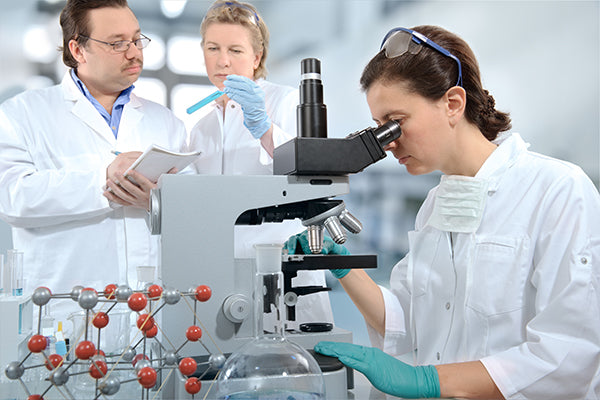
The Study
The researchers surveyed close to 900 male residents from hospitals in Massachusetts and Connecticut, asking about habits (supplement use, smoking, drinking, exercise and other factors) as well as family history of testicular cancer. Three-hundred fifty six males had been diagnosed with TGCC and 513 were not diagnosed with it. Then they analyzed the data to see if there was any "link" between supplement use and TGCC. Aside from only being a "link", there are quite a few more things that make the study very weak in terms of providing any definite conclusions about MBS use and TGCC in males: 1. Questionnaires were used to collect data.Although questionnaires are common in research, they are not the most reliable source of information. The researchers assume that people are telling the truth or remember things accurately.
2. The term 'muscle building supplements' (MBS) is too broad and thus, very vague.In the study, this term included 30 different types of powders or pills. The study disclosed that major ingredients listed in these products included creatine, protein and androstenedione, three extremely different types of supplements, which should not have been lumped together. For example, androstenedione is an illegal steroid hormone, which is banned by the World Anti-Doping agency, whereas protein is an essential nutrient needed by the body. Creatine helps to make the energy that muscles need to work.
3. Supplements were not lab-verified to confirm the presence of ingredients on their labels.For example, if a subject said he took a creatine supplement, it was assumed that what was in the supplement was actually creatine. Unfortunately, dietary supplements are not regulated by the FDA, so products don't always contain what they claim they do (as we learned earlier this year).
4. The types of protein supplements used were not specified.We don't know if they used plant-based or animal-based proteins. We don't know if they were pure protein sources, or whether they were blended with other proteins. We also don't know what additives or other ingredients were in these protein supplements.
5. MBS 'usage' was defined as “at least once a week, for four consecutive weeks.”It seems a bit extreme to conclude that using MBS in this context (minimum of 4 days) at any point in your life would increase your risk compared to never having used MBS.
6. Groin injury, cryptorchidism (undescended testes) and being caucasian are all risk factors for TGCC.These risk factors happened to be more common in the group diagnosed with TGCC, compared to the control group. So how do we know these aren't the reasons they developed TGCC? We don't.
7. There was no discussion on the amount of exercise or type of exercise performed.Exercise, (especially strength training) typically leads to elevated levels of testosterone or other hormones in the body. Over training, however, can have the opposite effect and lead to lowered levels of testosterone or increased levels of cortisol (the stress hormone). Some cancers can be driven by hormone imbalances, and we don't know if this had any effect on cancer development.
